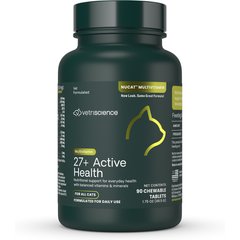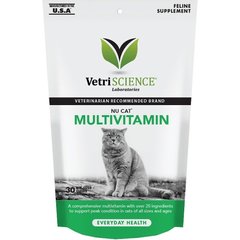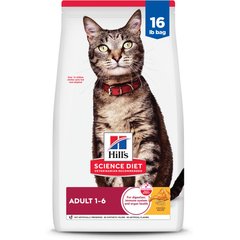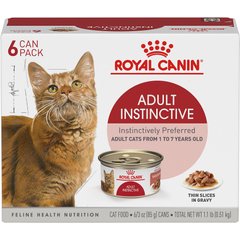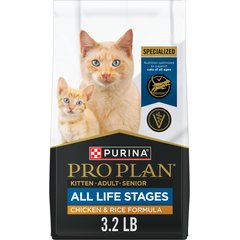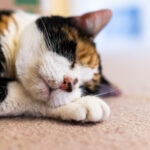What Are Iron Supplements for Cats?
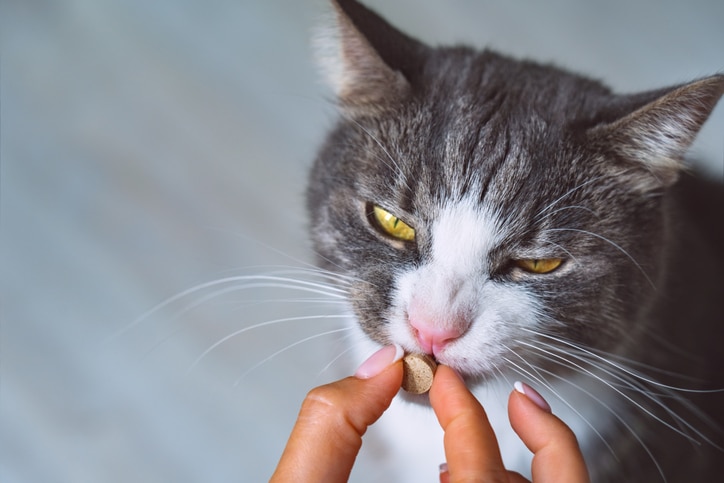
Photo by Daria Kulkovai/Stock/Getty Images Plus
Cats need a variety of vitamins and minerals to be healthy, and iron is one of those nutrients. But how do you know if your cat is getting enough?
If you’re feeding your cat a formula that’s approved by the Association of American Feed Control Officials (AAFCO)—the gold standard in pet food—most of the work’s done for you. But certain health conditions or an unbalanced diet can lead to low iron levels.
Key Takeaways
- Iron is vital for healthy red blood cells, oxygen transport, energy, muscle function, and immunity.
- Most commercial AAFCO-approved cat foods already contain sufficient iron for most cats.
- Iron supplements are usually prescribed by a veterinarian for anemia, blood loss, or illness in a cat.
- Too much iron can be toxic—causing vomiting, organ damage, or even death—so dosing must be monitored by a veterinarian.
- Never give your cat supplements without consulting your veterinarian.
What Is Iron?
Iron is an important mineral, and cats need it to thrive.
“Iron is just as essential for cats as it is for people,” says Marc Smith, a veterinarian at Natchez Trace Veterinary Services in Nashville.
Iron plays a key role in making hemoglobin, a protein in red blood cells that carries oxygen from the lungs to the rest of the body, Dr. Smith explains.
Without enough iron, cats can’t make healthy red blood cells, which means vital organs like the heart, lungs, and kidneys don’t get the oxygen they need to function properly.
Iron also supports active energy levels, muscle health, and a strong immune system, all essential for keeping your cat feeling their best.
The good news is that iron deficiency in cats is rare. That’s because commercial cat foods labeled complete and balanced are carefully formulated with the right amount of iron mixed in.
If your cat’s food has that label and is AAFCO-certified, you can feel confident your feline is getting all the iron they need.
Can Cats Take Iron Supplements?
Yes, cat iron supplements are sometimes needed under the recommendation of a veterinarian.
But Dr. Smith says that iron supplements are rarely the first solution for iron deficiency. And if the cause of iron deficiency is the lack of a complete and balanced diet, your vet will likely recommend switching to an approved formulafirst.
On the other hand, if your cat is anemic—which happens when there aren’t enough healthy red blood cells or hemoglobin to carry oxygen through the body—a vet might recommend iron supplementation alongside prescribed medications, Dr. Smith explains.
There are a few ways iron can be supplemented in cats, and your vet will choose the best option depending on the cause of the deficiency, your cat’s overall health, and how well your cat can handle medications.
Oral Tablets or Liquids
The most common option for mild to moderate deficiencies, oral tablets or liquids are convenient for long-term, at-home use.
Recommended Products
Injectable Iron
Given at the vet’s office for severe cases of iron deficiency in cats, injectable iron may be the best option for cats who can’t take oral meds, or when a rapid response is needed.
Iron-Rich Diets
Nutritional iron deficiency is rare in adult cats unless they’re eating an unbalanced homemade diet. A high-quality, AAFCO-approved adult cat formula will provide the iron they need.
Recommended Products
However, very young cats and kittens are sometimes iron-deficient since they are growing rapidly and can lose blood due to intestinal or external parasites. They may benefit from a food formulated for kittens, but ask your vet.
Recommended Product
Why Your Vet Might Recommend Cat Iron Supplements
Your veterinarian might recommend iron supplements for your cat if they have a deficiency or are diagnosed with feline anemia. These conditions may be caused by a few things.
Parasites
“Untreated parasitic infections can have severe consequences,” says Megan Cave, an emergency veterinarian at Veterinary Emergency Group in Chicago. Fleas, for example, can cause significant blood loss, leading to anemia, she says.
Nutritional Deficiencies
Cats get iron from their food, but picky eaters or cats on homemade diets may not get enough iron to meet their needs.
Blood Loss
If a cat has significant bleeding—such as from surgery, an injury, or internal issues like a tumor or gastrointestinal problem—they may require an iron-fortified prescription diet or iron supplements to help with recovery.
Underlying Illness
Severe illnesses or infections can interfere with your cat’s ability to produce red blood cells.
Signs Your Cat May Have Low Iron
If your cat shows any of the symptoms below, call your veterinarian immediately.
- Pale gums or tongue
- Lethargy or unusual sleepiness
- Loss of appetite
- Rapid or labored breathing
- Weakness or lack of activity
- Unexplained weight loss
- Note that pale gums and breathing issues are a medical emergency. Seek vet care immediately.
How To Find the Best Iron Supplement for Your Cat
Never give your cat iron supplements without guidance from your veterinarian.
When shopping for cat supplements, look for these signs:
- Safety labels: Look for labels confirming the supplement is free from heavy metals and polychlorinated biphenyls (PCBs). A third-party seal, such as the National Animal Supplement Council (NASC) certification, indicates that the product has been independently verified for quality.
- Clear amounts per serving: The packaging should list the amount of each vitamin, mineral, or nutrient in every serving.
- Protective packaging: Dark, airtight bottles are best, since exposure to light and air can reduce nutrient quality or cause them to go rancid.
- Purity: Choose supplements with minimal additives or preservatives, and avoid artificial flavorings whenever possible.
How Much Iron Should You Give Your Cat?
When giving iron to a cat, follow the guidance from your veterinarian, who will determine the correct dose based on your cat’s medical needs, age, weight, diet, and overall health.
Never give your cat a human iron supplement unless you are told to do so by your veterinarian, as the dosage can often be toxic.
If you suspect your cat has ingested too much iron or a human iron supplement, call the Pet Poison Helpline at 855-764-7661.
Can Iron Supplements Be Bad for Cats?
Yes, too much iron can lead to:
- Vomiting, diarrhea, and abdominal pain
- Weakness or lethargy
- Organ damage, especially to the stomach lining, liver, or heart
- Shock or death (in severe cases)
Watch your cat closely, particularly during the first few days of giving a supplement, when an adverse reaction is most likely to occur. Concerning symptoms include:
- Vomiting, sometimes with blood
- Diarrhea, sometimes dark or bloody
- Loss of appetite
- Weakness or lethargy
- Rapid breathing or heart rate
- Abdominal pain (crying out, hunching, or avoiding touch)
- Pale gums or jaundice (yellowing of gums, skin, or eyes)
- Seizures in severe cases
If you see any of these signs, discontinue the supplement and contact your vet immediately.
FAQs About Feline Iron Supplements
What is a good source of iron for cats?
Commercial cat foods that are complete and balanced for your cat’s life stage are the best source of iron for your cat.
What are the first signs of anemia in cats?
Anemia may not show symptoms at the beginning, but as it progresses, you may notice pale gums or tongue, sleepiness, loss of appetite, rapid or labored breathing, weakness, or unexplained weight loss.
Is tuna high in iron?
Yes, tuna is high in iron, but it’s not the complete and balanced diet your cat needs. Plus, feeding your cat too much tuna can lead to nutritional deficiencies and may cause dangerous levels of mercury to build up.

